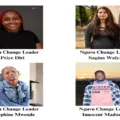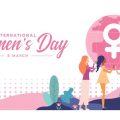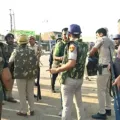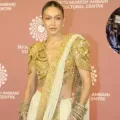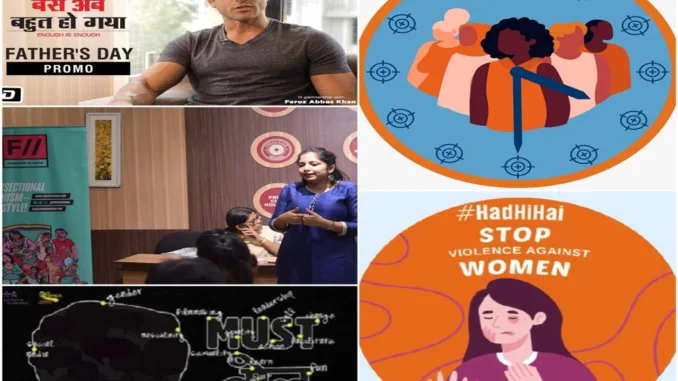
On International Day for the Elimination of Violence against Women (November 25), here is an overview of the initiatives that are empowering women
A recent survey of more than 4 lakh FIRs (First Information Report) in Haryana discovered that when a male complainant registers a case on behalf of a woman friend or relative, he is less likely to “face burdens or exclusions” than if the woman herself was the primary complainant. The report published in October by Nirvikar Jassal, Assistant Professor of Political Science at the London School of Economics and Political Science, is less about data gleaned from a single state and more about blatant and subtle gender inequities women struggle with routinely.
Patriarchy not only fuels crimes against women but also disempowers them when they try to seek justice. A few initiatives are striving to change this by addressing systemic and societal fault lines that facilitate gender violence.
An overview:
1. #BasAbBahutHoGaya by Population Foundation of India:
Population Foundation of India’s initiative #BasAbBahutHoGaya has synergised with Farhan Akhtar’s MARD Foundation (Men Against Rape and Discrimination), to challenge the pervasive manner in which gender violence is not only normalised but also condoned. Short films like ‘Nirbhaya, Never Again’ produced by Population Foundation of India shed light on the factors that perpetuate physical and sexual abuse against women in society. Helmed by well-known film and theatre director Feroz Abbas Khan, the #BasAbBahutHoGaya campaign has also featured achievers like Sania Mirza and Barkha Dutt. In the recent past, Farhan Akhtar has dedicated a song ‘Chulein Aasman’ as part of the campaign which was started with a filmmaking competition and a concert.
2. UNITE campaign by the UN
In the global report on ‘Violence against Women’ by the World Health Organization (WHO), it’s reported that more than a quarter of women aged 15-49 in relationships have experienced physical or sexual violence from their intimate partner at least once in their lifetime since the age of 15—an issue of great concern. Addressing this problem, the UN has intensified the UNITE campaign, originally launched in 2008. As part of UNITE, ’16 Days of Activism against Gender-Based Violence’, an annual campaign, starts on November 25 and continues till International Human Rights Day on December 10. Moreover, the UNiTE campaign has proclaimed the 25th of each month as ‘Orange Day,’ a day to raise awareness and take action to end violence against women and girls.
3. #GBVinMedia by Feminism in India:
#GBVinMedia, by Feminism in India, challenges the media’s portrayal of gender-based violence, aiming to combat victim-blaming narratives and empower women. It seeks to reform the way the media reports on gender-based violence. The #GBVinMedia project comprises four major activities: a) the research and creation of the #GBVinMedia toolkit, b) the facilitation of events, workshops, and seminars to disseminate the toolkit, c) a digital advocacy campaign, and d) the crowdsourced art project. The digital campaign was extremely successful and the most successful article from the campaign was read nearly 17,000 times. As claimed by Feminism in India, the total reach of the campaign was over 7,00,000.
4. Must Bol by Commutiny Collective:
The ‘Must Bol’ campaign, led by ‘Commutiny- The Youth Collective’-combats gender-based violence by involving young leaders in raising awareness through short films, exhibitions, and workshops. It has reached over 32,000 people online and 4,500 offline, providing a platform for dialogue and action against GBV. ‘Must Bol’ was initiated with financial support from UN Women and Partners for Prevention (a regional joint programme of UNDP, UNFPA, and UNV for Asia and the Pacific). The campaign further garnered support from the Sir Ratan Tata Trust to extend its reach to a broader network of young leaders nationwide.
5. HadHiHai on Gender-based Violence by W.E.F
The ‘HadHiHai on Gender-based Violence’ is a supportive program launched by the World Economic Forum in support of the UN’s 16 Days of Activism against Gender-Based Violence. The project aims to amplify the voices of women against gender inequality through digital advocacy and online campaigns. The outreach partner for this program in India was One Future Collective, and the project team has created videos of insights and learnings from direct interactions with members of the community to provide a glimpse of what domestic violence means to them.

